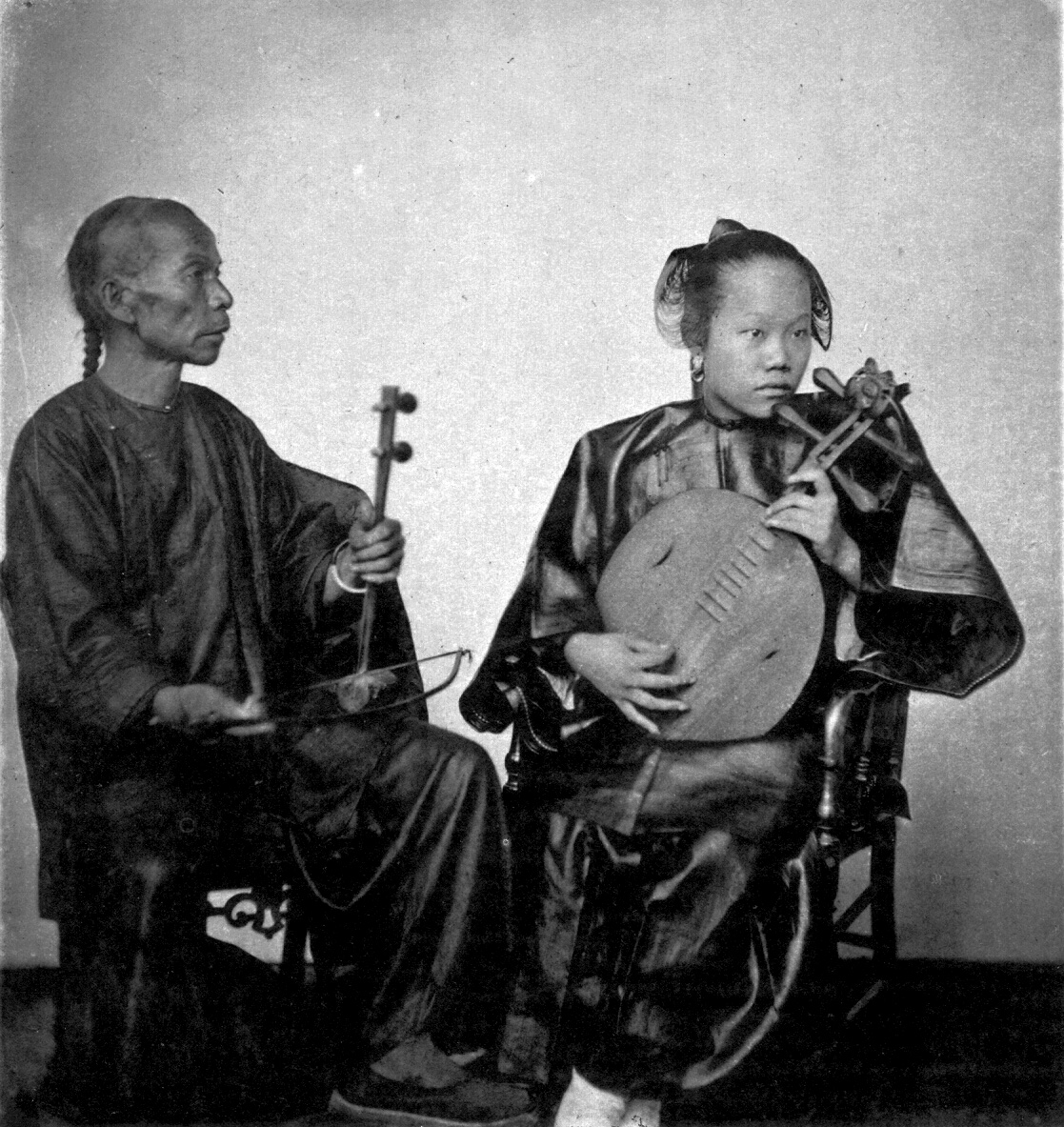|
Д‘Г n Tб»©
The ''Д‘Г n tб»©'' (chб»Ї HГЎn: еЅ€е››) (''tб»©'' meaning "four" in Sino-Vietnamese, referring to the instrument's number of strings), also called ''Д‘Г n Д‘oбєЈn'' (''Д‘oбєЈn'' meaning "short," referring to the instrument's neck) or ''Д‘Г n tб»© trГІn'' (''trГІn'' meaning "round"), is a traditional Vietnamese culture, Vietnamese string instrument, stringed musical instrument, this is short-necked, round-bodied lute derived from the Chinese ''yueqin'', with four strings in double Course (music), courses. It is little used today. A different instrument with the same name, which is similar to the Chinese ''zhongruan'' but with a rectangular or slightly trapezoidal soundbox, is used in Vietnam's tradition of ''nhбєЎc dГўn tб»™c cбєЈi biГЄn''. In around the 1960s, musicians in Vietnam's conservatories improved the ''Д‘Г n tб»©s ability to play Western-style music by creating a rectangular body with longer strings and fretting designed for the Western diatonic scale, which is also calle ... [...More Info...] [...Related Items...] OR: [Wikipedia] [Google] [Baidu] |
Yueqin
The ''yueqin'' (; ja, жњ€зђґ, Gekkin; ko, м›”кё€/жњ€зђґ, Wolgeum; vi, Nguyệt cбє§m), also called a moon lute or moon guitar, is a traditional Chinese string instrument. It is a lute with a round, hollow soundboard, a short fretted neck, and usually four strings. It is an important instrument in the Peking opera orchestra, often taking the role of main melodic instrument in lieu of the bowed string section. The instrument was invented in China in the 3rd to 5th centuries AD, during the Jin dynasty. The ruan, another Chinese instrument, is the ancestor of the yueqin. The name ''yueqin'' once applied to all instruments with a moon-shaped soundboard, including the ruan; however, "yueqin" now applies to a separate category from the ruan family. Etymology The word ''yueqin'' is made of two characters, ''yuГЁ'' (жњ€ "moon") and ''qГn'' (зђґ "stringed instrument, zither"). Its name in Korean (''wolgeum'') Japanese (''gekkin'') mean the same thing, and are Sinoxenic words, me ... [...More Info...] [...Related Items...] OR: [Wikipedia] [Google] [Baidu] |
.jpg)
